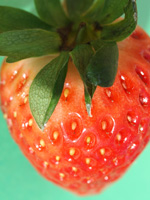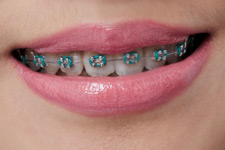Many people find that stress causes mouth ulcers on the gum, tongue, inside cheek or inner lip to rear their ugly head, but it is not a correlation for everyone. Also known as aphthous ulcers, these shallow round or oval open sores can cause considerable pain and in themselves cause stress to sufferers. Often times when people susceptible to recurring canker sores go through periods of stress like taking an exam or facing a big deadline at work, they may find themselves with a painful mouth ulcer.
Stress May Trigger Canker Sores
Your body reacts to changes and events in our lives – everyday stress like driving to work, trying to get your kids to clean their room or do their homework, job pressures and many other experiences of our daily lives causes stress. Then there are the major life stresses like divorce, death, moving, or losing a job. When you are experiencing high levels of stress many things happen within your system to help your body deal with it. Your digestion starts to slow down, higher level brain functions shut down, hormonal and regulatory functions slow down so your body can put all its energy into surviving what feels like an attack. This includes the immune system.
Managing Stress
 Stress has far-reaches consequences, so if you suffer from frequent canker sores brought on by stress it is important that you learn to manage your stress. Stress management techniques include getting regular exercise, which helps lower the production of stress hormones and related neurochemicals. Meditation can also be a powerful stress-reliever. A longtime Eastern tradition, Western medicine has begun to embrace this technique as an effective means of lowering stress. If you experience frequent mouth ulcer outbreaks, try meditating for 20-30 minutes a day. Don’t have that much time or know how? Start with five or 10 minutes of quiet time.
Stress has far-reaches consequences, so if you suffer from frequent canker sores brought on by stress it is important that you learn to manage your stress. Stress management techniques include getting regular exercise, which helps lower the production of stress hormones and related neurochemicals. Meditation can also be a powerful stress-reliever. A longtime Eastern tradition, Western medicine has begun to embrace this technique as an effective means of lowering stress. If you experience frequent mouth ulcer outbreaks, try meditating for 20-30 minutes a day. Don’t have that much time or know how? Start with five or 10 minutes of quiet time.
Other stress relievers include taking lunch breaks and trying to do activities that you enjoy on the weekend. Listen to your favorite music. Play with your dog. Do whatever you enjoy doing, it will naturally refocus your attention and help you relax. The more you can de-stress, the better chance your immune system has to respond to the mouth sore and heal it.
Treating Your Mouth Ulcers
In the meantime, if you are dealing with a mouth sore and it’s causing you a lot of pain, there are things you can do to relieve it. You can get over-the-counter medications such as Anbesol or Orabase, which contain numbing agents that can temporarily provide pain relief. I like something like Cankermelts Medicated Discs which covers the sore and helps it heal at the same time. You can also try popping a pain reliever such as ibuprofen, which is also an anti-inflammatory. Gargling with salt water or a mixture of half water and half hydrogen peroxide (don’t swallow) can provide relief. While this sounds like an unusual combination, many people find relief by applying a mixture of equal parts Benadryl Childrens Allergy Liquid Medicine
and either Milk of Magnesia or Kaopectate. The allergy med has an antihistamine effect while the Milk of Magnesia/Kaopectate coats and soothes the ulcer. You can apply this mixture several times a day. Most mouth ulcers go away on their own with no treatment. If your sores are severe or so painful you have a hard time talking, you may need to see your dentist or doctor, who can prescribe a special mouth rinse or topical paste to help treat them.
Prevention
While there are no definite ways to prevent mouth ulcers, if you find your sores are triggered by stress, then employing stress reduction techniques may go a long way in reducing the onset of painful sores. It’s also smart to practice good oral hygiene, avoid hard foods like chips and crackers that could irritate and cause minute tears inside your mouth leading to a sore on your gum or inner cheek, especially, and avoid toothpastes with sodium laurel sulfate, which can be irritating to the mouths of some people.



